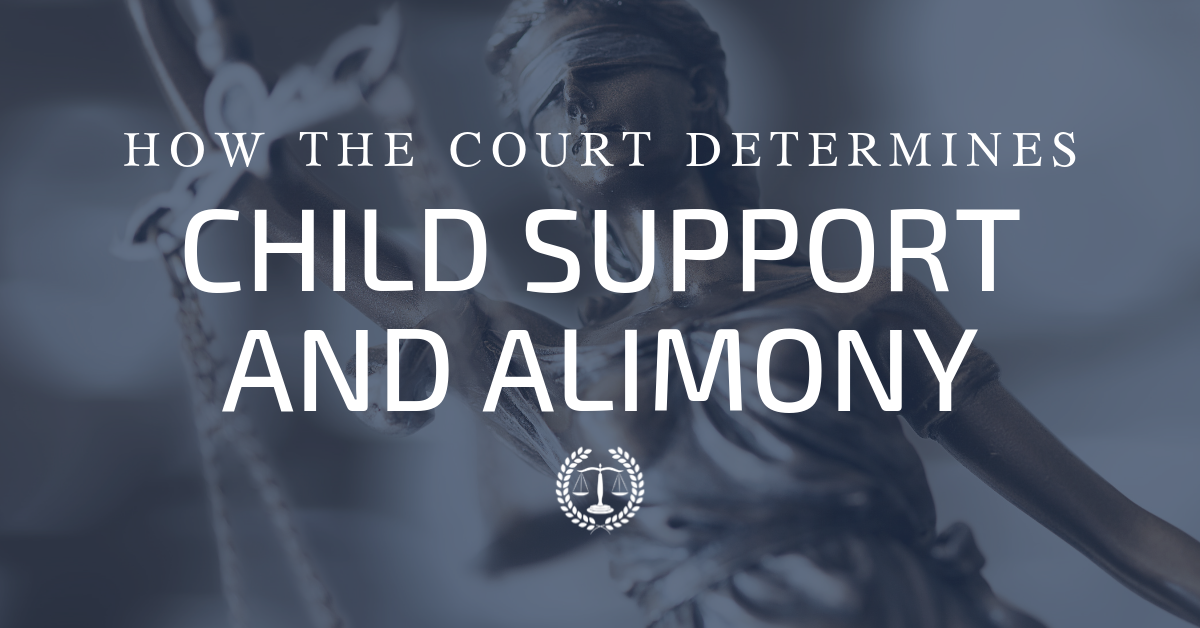The court determines child support awards and alimony awards separately. Why you ask? Well, for starters, child support goes to support the child and alimony goes to support the former spouse. Child support payments generally only continue until a child is 18 years of age, while alimony payments are not tied to the age of a child. In addition, each state differs in how they determine the amount of child support or alimony that should be awarded.
Considerations when Determining Child Support
While states may differ in how they determine child support, courts will generally look at:
Income
Most states look at the income of both parents and take a percentage of each parents’ income that would be used to support the children. This, however, is only a starting point in calculating the final amount of award.
Childcare and Healthcare Expenses
States usually take into consideration how much it will cost a parent to care for their child/children. Courts will usually give credit to the parent that is paying for the child’s healthcare expenses. If the child goes to daycare so that a parent can work, or look for work, the court will also take the amount spent on daycare into account. However, if you get an income tax deduction for childcare, the court may also take that deduction into account.
Custody and Visitation
The court typically takes the custody arrangement into consideration along with any other expenses related to visitation (for example, airline tickets and hotel expenses if the parent must travel to visit their child).
Considerations when Determining Alimony
Courts generally have a lot of flexibility on determining how much alimony to award. Below are some factors the court may look at:
Standard of Living
The majority of states consider a couple’s standard of living when determining alimony. Would one spouse’s lifestyle drastically change after the divorce if they didn’t receive alimony? This information may factor into the court’s decision.
Custodial Status
The majority of states do not consider the custodial status of the children in awarding alimony, however, there are still about ten states that will consider whether or not the receiving spouse is the custodial parent. The custodial parent may receive higher alimony payments in these states.
Marital Fault
There are very few states that will look at marital fault when considering alimony. Even if you are living in one of the states that consider marital fault, there may be other considerations that the court may look at that would outweigh the consideration of marital fault.
Overall, the objective when awarding child support and alimony is to be fair. Child support payments and alimony payments are not punishments. They are awarded in an effort to balance the scales between ex-spouses’ and to make sure that their children are well-cared for and have their needs met. Each award is handled on a case-by-case basis because every case is unique. While the factors mentioned above may be looked at, you may also have other factors that should be taken into consideration. If you think you have additional factors that need to be looked at, you should bring those factors to the attention of your attorney.
Mestayer Law Firm provides civil litigation for clients throughout the Gulf Coast area including Pascagoula, Biloxi, and Gulfport. If you are making future plans for your estate, then contact us today and let us help take care of every detail of your finances. Call us today at 228-762-1193 or visit www.pascagoulalaw.com. We are your legal experts! You can also visit our office located at 2128 Ingalls Ave. in Pascagoula, Mississippi. We look forward to talking with you!
No representation is made that the quality of the legal services to be performed is greater than the quality of legal services performed by other lawyers.
This article does not create an attorney-client relationship. I am licensed to practice law in Mississippi and have based the information presented on US laws. This article is legal information and is for entertainment and informational purposes only and should not be seen as legal advice. You should consult with an attorney before you rely on this information. Any information provided in this blog is accurate and true to the best of my knowledge, but that there may be omissions, errors or mistakes.

